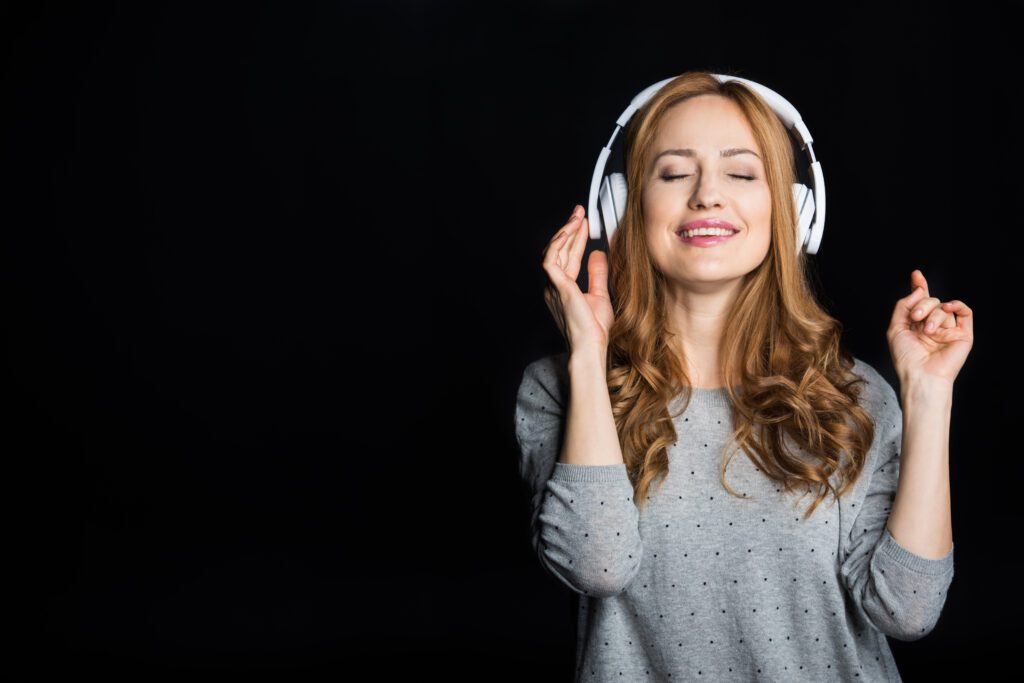How Music Shapes Your Brain: Fun Science Behind Learning an Instrument
Music is more than just sound—it actively shapes your brain.
It influences how you think, feel, and interpret the world around you. From classical masterpieces to today’s hits, music leaves a powerful imprint on your mind.
And when you learn to play an instrument, the impact goes even deeper. It activates multiple areas of the brain, strengthens neural connections, and develops skills you might not have imagined.
The Brain on Music: A Symphony of Activity
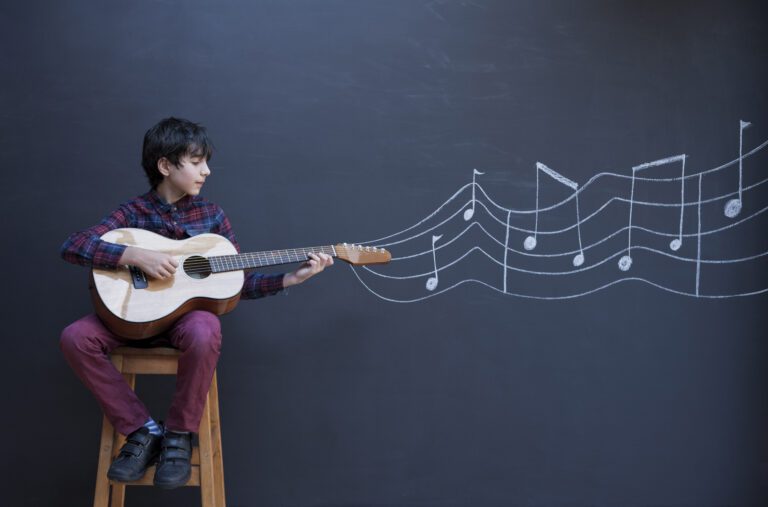
When you listen to music, your brain lights up like a concert hall. Neuroscientists have found that almost every part of the brain is activated when we engage with music. But playing an instrument? That’s a full-brain workout.
Left Brain + Right Brain in Harmony
Playing an instrument requires:
- Logical thinking (reading sheet music, understanding rhythm)
- Creativity (interpreting and expressing emotion)
- Coordination (hands, fingers, and sometimes feet)
- Memory (muscle memory, music theory, structure)
- This combination strengthens the connections between the two hemispheres of the brain. Musicians often show greater connectivity in the corpus callosum—the bridge that links left and right brain.
Music and Memory: A Stronger Recall
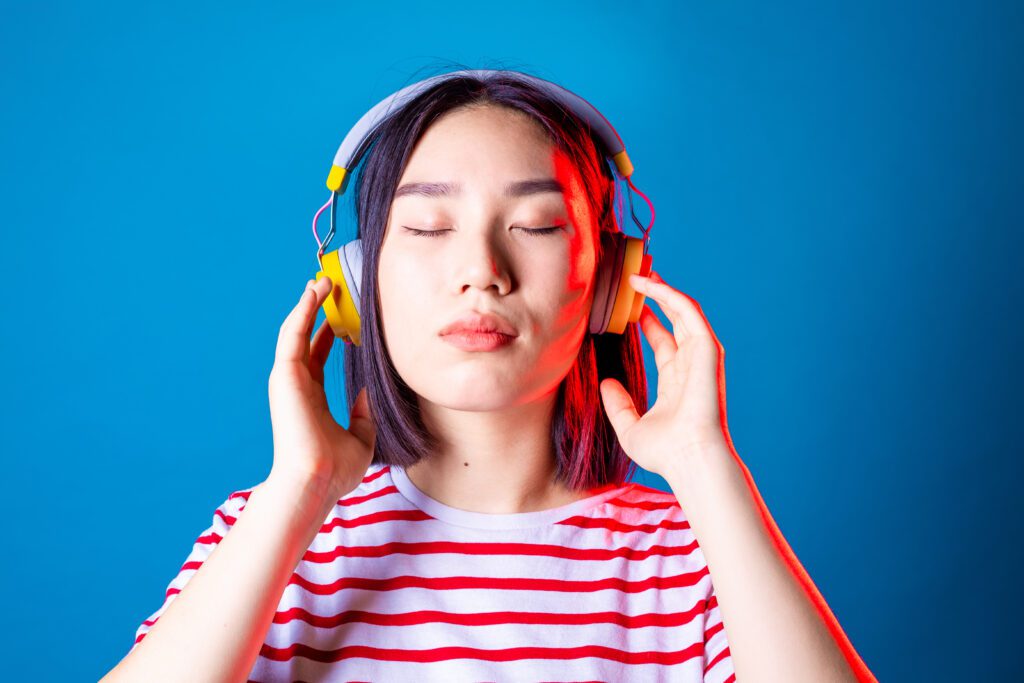
One of the most exciting benefits of music training is its effect on memory. Students who learn instruments tend to:
- Remember instructions better
- Excel at multitasking
- Develop sharper short- and long-term memory
Why? Because music involves patterns, repetition, and structure—core principles that help encode memories more effectively. Think of learning a melody like giving your brain a workout in remembering sequences.
Emotional Intelligence and Empathy
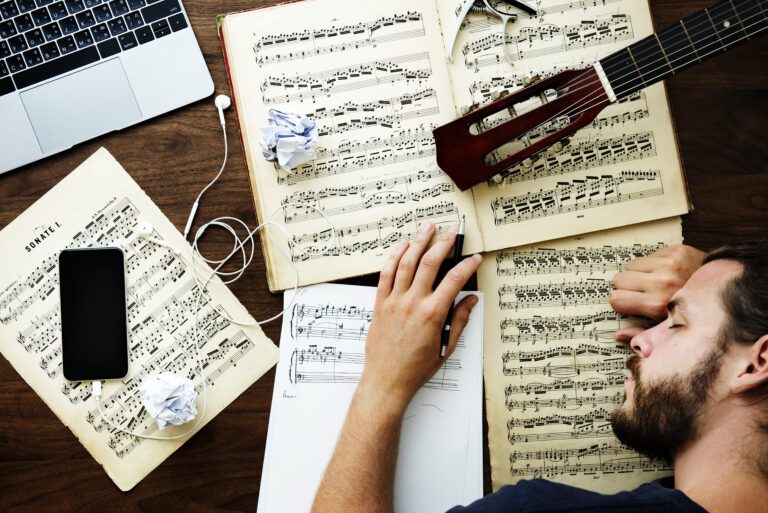
Music is full of feeling. Whether it’s a sorrowful violin or a joyful ukulele, playing music teaches students to recognize and express emotions. This builds emotional intelligence (EQ), a critical life skill.
Children and adults who regularly engage in music often:
- Show higher empathy
- Are more socially aware
- Cope with stress better
The act of performing or even interpreting a song helps learners connect with the emotional states of others—especially in ensemble or group performance settings.
Motor Skills and Coordination

Drummers, pianists, and violinists all have one thing in common: incredible coordination. Playing music improves fine motor skills by:
- Enhancing finger strength and flexibility
- Training the brain to control multiple movements at once
- Boosting hand-eye coordination
- These skills aren’t just helpful for music—they transfer into typing, sports, drawing, and everyday activities.
Academic and Cognitive Boosts
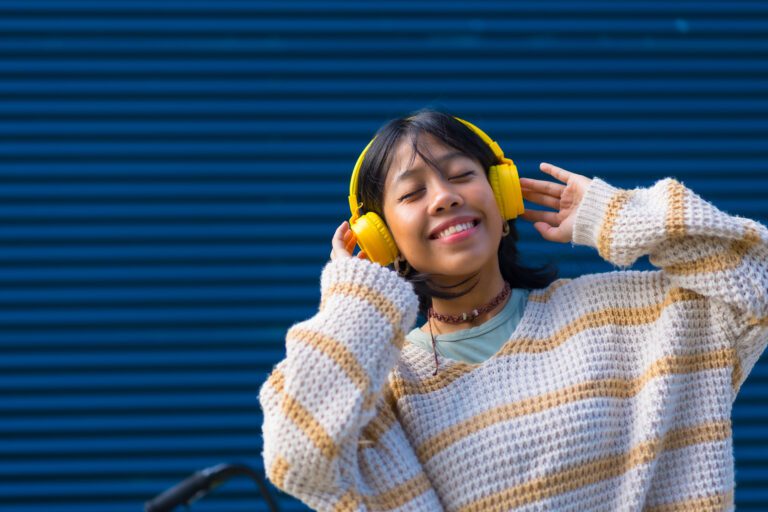
Many studies have shown a link between music learning and improved academic performance. Students involved in music training tend to perform better in:
- Math (due to rhythm and pattern recognition)
- Reading (thanks to improved auditory processing)
- Language learning (music enhances phonetic understanding)
- Music sharpens your brain’s ability to distinguish subtle differences in sounds—crucial for learning new languages or improving reading skills.
Stress Relief and Brain Health
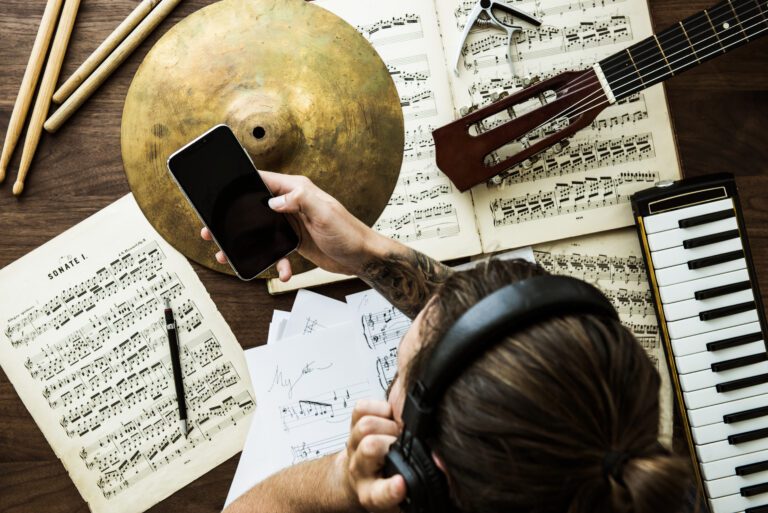
Playing music is known to reduce cortisol levels (your stress hormone). The repetitive, rhythmic nature of practice, combined with emotional expression, helps:
- Calm the nervous system
- Reduce anxiety
- Improve focus and attention
- Some studies even suggest that learning an instrument can help delay cognitive decline in older adults.
Brain Plasticity and Lifelong Learning
One of the most magical aspects of learning an instrument is neuroplasticity—the brain’s ability to change and adapt. Musicians often develop new neural pathways, even into adulthood. That means it’s never too late to start playing.
The more you practice, the more Music Shapes Your Brain—improving not only your musical skills but also how you think, learn, and solve problems.
About The Mystic Keys
At The Mystic Keys, we believe in the transformational power of music. Our personalized, one-on-one online music classes are designed to engage your brain while nurturing your creativity. Whether you’re a complete beginner or looking to refine your skills, our experienced teachers craft lessons that fit your pace and goals. With session recordings, flexible scheduling, and a professional structure, we support your learning journey every step of the way. We’re not just teaching music—we’re helping shape minds and inspire futures.
Final Thoughts: Tune Your Brain with Music
Learning music is one of the most enriching activities you can do for your brain. It’s not just about mastering notes—it’s about unlocking memory, coordination, emotional intelligence, and creativity. From toddlers to seniors, anyone can benefit from picking up an instrument and making music a part of their life.
So, whether you’re looking to boost brainpower or simply explore your musical side, know this: your brain will thank you.
Ready to Shape Your Brain with Music?
Join a personalized music class that fits your rhythm and grows with you.
Explore Piano Lessons Online designed to help you improve your musical timing with techniques like metronome practice, tapping, and rhythm drills for better accuracy.
For more information and exciting resources about learning music, visit our website at The Mystic Keys. For more music content and exciting offers follow us on
Facebook, Instagram, YouTube, LinkedIn, Twitter, Pinterest, Reddit, Threads,
and Quora.
Related Blogs
Playing a musical instrument is a deeply rewarding pursuit, blending artistry, skill, and discipline into a lifelong journey. Whether you’re just starting out or have years of experience, there’s always room for growth.
Choosing the right instrument is one of the most exciting steps in a beginner’s musical journey. Whether you’re a parent enrolling your child, a teenager chasing a passion, or an adult reigniting an old dream, the first instrument you choose plays a big role in your learning experience.
When starting your musical journey, choosing the right instruments best for beginners is crucial to ensuring an enjoyable and rewarding learning experience. Selecting an instrument that suits your personal preferences, physical abilities, and musical goals can significantly impact how motivated you stay and how quickly you progress.


